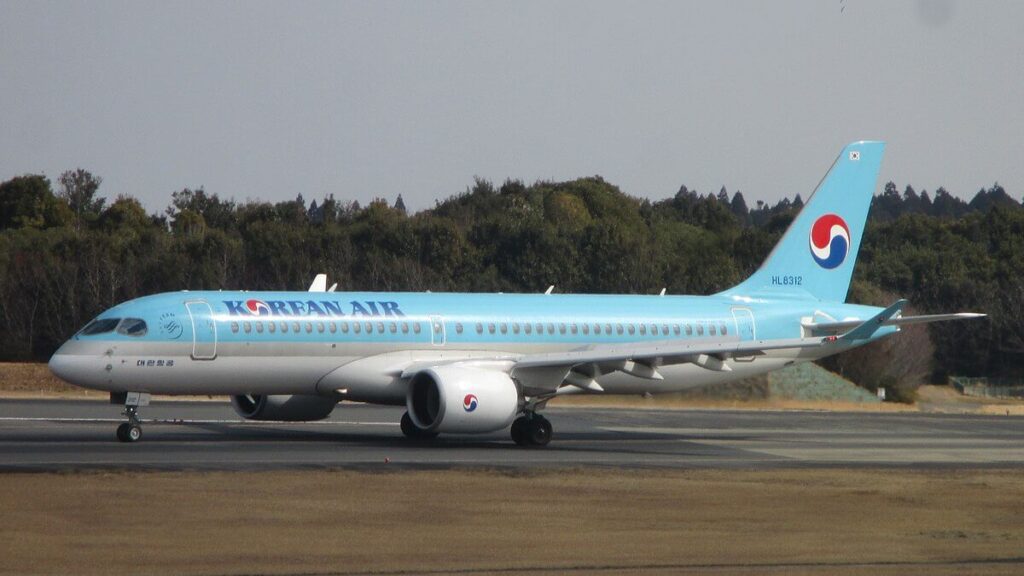Korean Air announced that its fleet of ten Airbus A220s would undergo inspection as requested by U.S. engine manufacturer Pratt & Whitney. A day before, Swiss Air Lines temporarily grounded its aircraft after the third engine incident in less than six months.
“We acknowledge the current issues involving PW engines of A220, and are working closely with Airbus as well as Pratt and Whitney,” said a Korean Air spokesman to AeroTime, adding ”Korean Air will immediately conduct thorough inspections for all A220s, but our operations will not be disrupted”.
On October 15, 2019, Swiss Air Lines announced that its fleet of A220s would be temporarily grounded for inspection. Earlier in the day, the flight LX359 from London Heathrow Airport (LHR) to Geneva International Airport (GVA) was forced to make an emergency landing at Paris Charles de Gaulle Airport (CDG) after one of the A220 engines failed mid-flight. It was the third incident this year involving the Pratt & Whitney PW1500G engines on the Swiss medium-range jetliners formerly known as the Bombardier C-Series.
About fifteen flights had to be canceled due to the grounding. “After a comprehensive engine inspection the first C Series have already returned into service in perfect condition,” Swiss announced on Twitter, adding that “based on the current planning the flight operations can be resumed on Thursday [October 17, 2019] in a largely regular manner”.
The Bureau d’Enquêtes et d’Analyses pour la Sécurité de l’Aviation Civile (BEA), the French authority for civil aviation safety in charge of the investigations regarding the two previous occurrences, will organize a voluntary search on November 6 and 8, 2019, for the missing engine parts of the Swiss Airbus A220, registered HB-JCM. On July 25, 2019, the aircraft was en route from Geneva to London when the left engine suffered an uncontained failure. The bureau is specifically looking for titanium parts of the first stage of the low-pressure compressor (LPC).
An airworthiness directive was issued by the Federal Aviation Administration (FAA) on September 24, 2019, addresses what it calls an “urgent safety issue” with PW1500G engines. The authority requires borescope inspections of the proper alignment of each LPC compressor inlet guide vane (IGV) stem. The airworthiness directive is only an interim action, as the investigation into the two recent in-flight shut down cases is still ongoing. Both failures of the LPC R1 occurred at low flight cycles since new (154 and 230 flight cycles). Based on the recommendation of the manufacturer, the FAA has determined that low flight cycle rotors require inspections within the next 50 flight cycles (equal to approximately 7 to 10 operating days) from the effective date of the AD.
Additionally to Swiss and Korean Air, Delta Air Lines, Air Baltic, EgyptAir, and Air Tanzania are also operating the Airbus A220.

